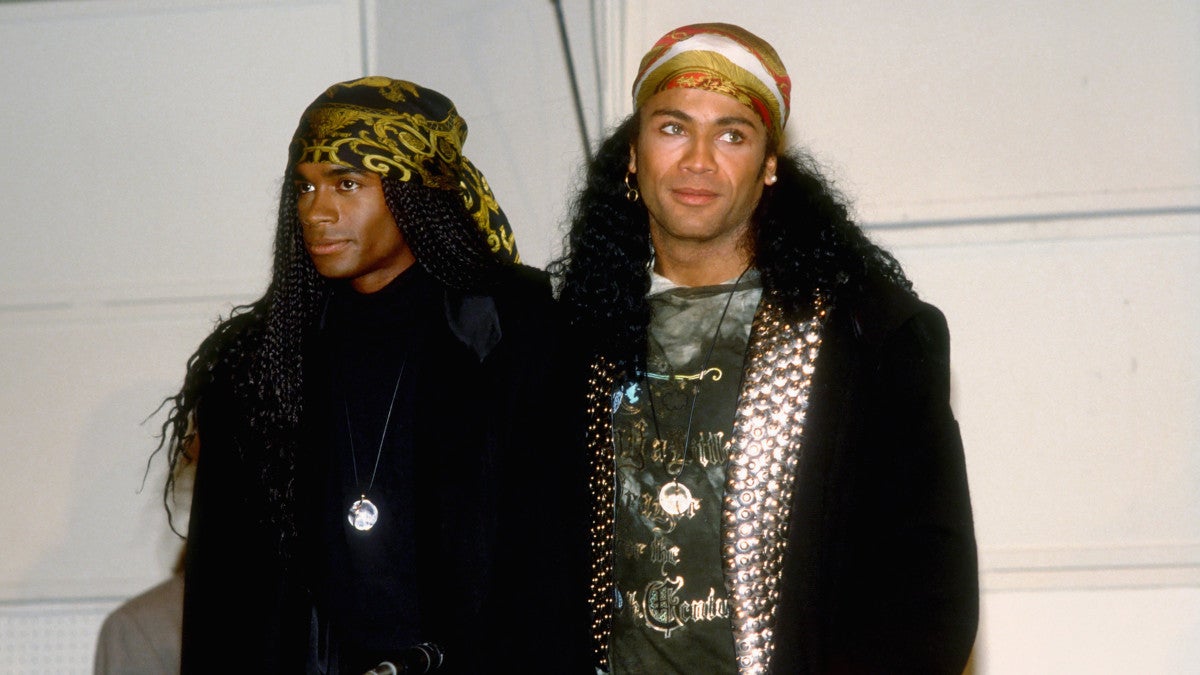
Some three decades after one of the biggest scandals in the history of pop music, Milli Vanilli still commands a certain fascination for those who lived through the 1980s. Their debut album went six times platinum and they won the Best New Artist Grammy in 1990, but later that year Fabrice Morvan and Rob Pilatus, the faces of the group, had to do a mea culpa because they had not actually sung on the album.
Luke Korem’s documentary, “Milli Vanilli,” which receives its world premiere at the Tribeca Festival and will stream on Paramount+ in the fall, is well-researched and polished, even if it’s essentially a feature-length episode of “Behind the Music.”
The movie traces the story as far back as their humble beginnings. Pilatus, born in Germany to an American soldier and a strip dancer, lived in an orphanage until age 4. Morvan, from a broken family, moved at 18 from Paris to Munich, where he was briefly homeless. As two of the very few Black people there at the time, they became fast friends. They generated some buzz throwing parties, working as back-up dancers on TV shows and modeling. Soon they were introduced to producer Frank Farian and traveled to Frankfurt. They signed a multi-album contract without reading the fine print and did not realize Farian had another plan for them. The rest is history.
In addition to Morvan, the documentary features interviews with the group’s actual vocalists — Brad Howell, Charles Shaw, Linda Rocco and Jodie Rocco — as well as Farian’s secretary, Ingrid Segieth, and Arista Records’ staff members. Notably absent is Farian himself and Clive Davis, Arista’s founder, seen only in archival interviews, as well as Pilatus and vocalist John Davis, both now dead.
Of course, almost everyone tries to evade responsibility for the calamity. Morvan says they had no choice but to go along due to their debt to Farian, a claim Segieth refutes. There are even discrepancies within Arista. Mitchell Cohen, artist and repertoire, denies any direct knowledge at the time, but Ken Levy, senior vice president, says Davis and others were fully aware. These conflicting accounts assure the documentary’s objectivity. The truth is clearly somewhere in between.
The archival footage, including some of their pre-fame TV appearances in Germany, appears to be exhaustively culled and restored. The additional interviewees, such as VJ “Downtown” Julie Brown, producer Timbaland, and various music journalists help supply important context.
Korem’s sympathies seem to be with Morvan and Pilatus, highlighting Brown’s calling them “scapegoats” in the opening intro. Still, success did go to Morvan and Pilatus’ heads, as Cohen points out, and they were arrogant and obnoxious. Armed with their phenomenal success with the first album, they honestly thought they could play hardball with Farian. They were wrong.
Interviewees cast Farian as the real villain, citing his history of exploiting Black artists, including the group Boney M. He could have developed Morvan and Pilatus and provided them with voice lessons, but he was just trying to use their likeness to make a quick buck. In fact, after Farian fired them, he assembled The Real Milli Vanilli vocalists again, along with others who did not sing on the first record. Privately, Morvan and Pilatus wrestled with imposter syndrome. Shaw likewise struggled with not getting his due for an enormously successful record. As Farian and Arista made out like bandits, the Black artists in front of and behind the curtain suffered from the mental toll it took on them.
Interviewees seem to agree in unison that Milli Vanilli’s Grammy win ultimately led to their demise. What’s unsaid here by those directly involved and the commentators featured is what it would have taken to keep up the charade. Do they think this kind of racket is still going on? Has the industry simply gotten better at crafting illusions?
The documentary concludes that Milli Vanilli did not harm anyone, and that the scandal should not have cost Pilatus his life. It ends with Morvan performing “Blame It on the Rain” competently at an outdoor festival. He clearly has worked hard on his singing and accent. Maybe this is how it should have been from the start.















